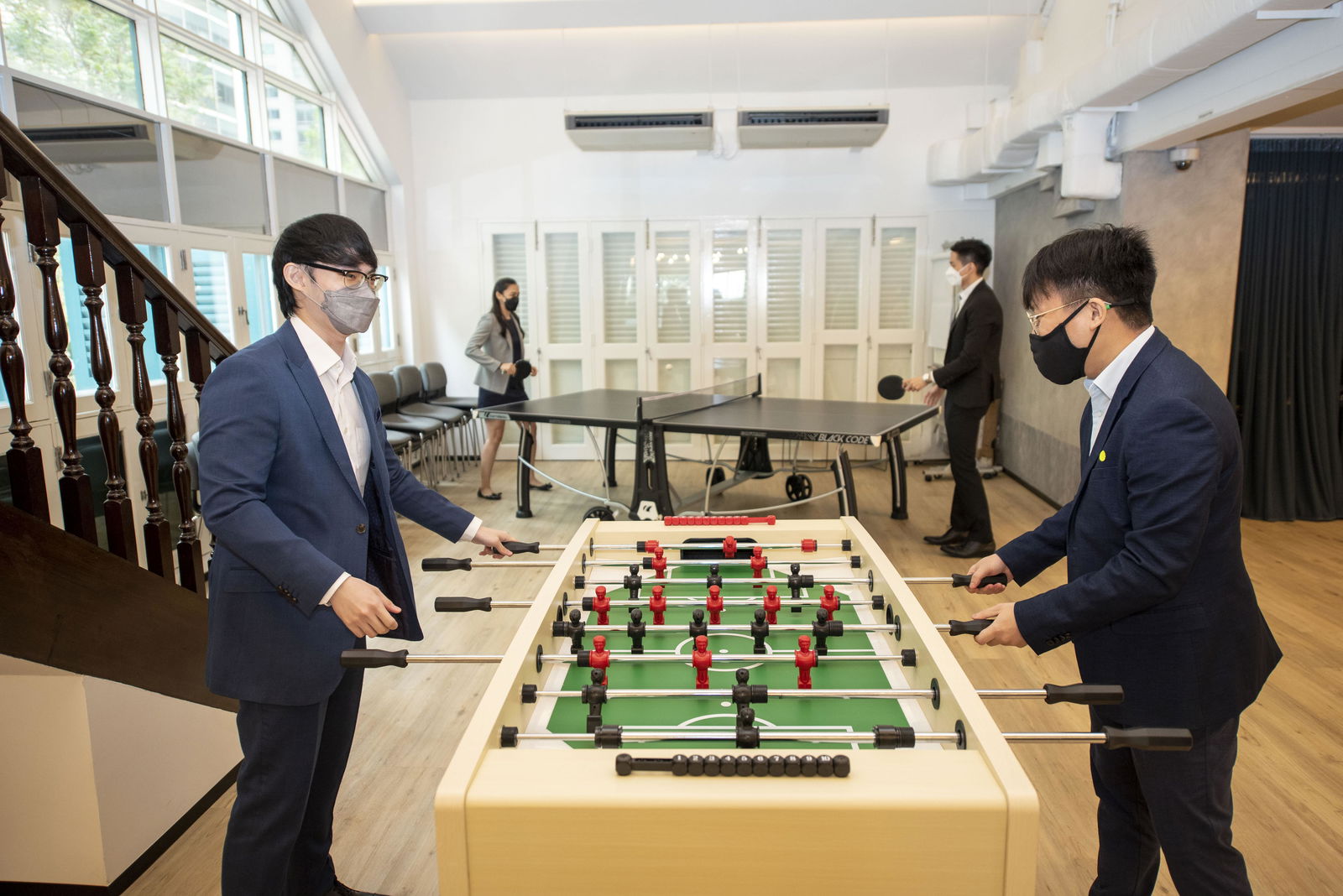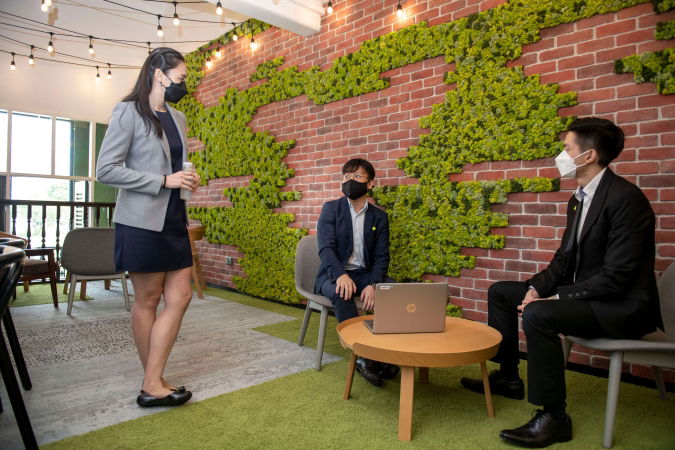share on
The Bank will open up short-term and project-based opportunities to retirees in the areas where technical expertise and experience are "highly valued", such as customer service and project advisory. It will also offer healthcare and insurance benefits for such gig roles.
On Friday (5 November 2021), UOB announced that it will strengthen its multi-generation workforce strategy with the launch of a gig employment model for retired employees to return to the workforce on a flexible basis.
The programme, dubbed a first in Singapore for a bank, is "part of UOB’s commitment to build an inclusive and diverse workforce of the future."
Speaking on the move, Wee Ee Cheong, Deputy Chairman and Chief Executive Officer, UOB, said with the rapid transformation of the financial services industry in an increasingly digital economy, coupled with Singapore’s maturing population, companies are required to "think differently about the workforce of the future."
"At UOB, we are committed to building a highly-engaged, flexible and multi-generational workforce which embraces change and is customer-centric and future-focused.
"We remain committed to growing our own timber through our comprehensive reskilling programmes, while also bringing in fresh talent to complement our capabilities. Our gig employment model is an innovative approach to creating a flexible workforce which taps on current demographic and social trends. Besides creating flexible opportunities for our retirees to stay active and for the Bank to tap on valuable skills and experience, it is also helping to create a vibrant society in Singapore where contribution and connection is not limited by age."
This announcement was made on the final day of the Bank's annual #Better Future of Work Festival, which also saw the official launch of its new employee clubhouse at 28 Boat Quay, Singapore, which includes more communal spaces such as open collaboration areas, work bistros, meeting rooms equipped with "state-of-the-art technology" tools, and individual spaces such as focus rooms and hot-desking spaces. In an interview with HRO earlier this year, Dean Tong, Head, Group Human Resources, UOB, said this space will double up as a collaborative space for informal discussions, brainstorming, and networking.


What's in store for retired employees at UOB come 2022
As part of its plan, the Bank will open up short-term and project-based opportunities to retirees in the areas where deep technical expertise and extensive experience are highly valued such as customer service, process and systems training, operations and project advisory. UOB will also test the feasibility of opening its flexible gig employment model to more people in time to come.
To address common concerns of gig workers, the Bank will offer healthcare benefits and insurance coverage for such roles, and put in place a seamless and simplified performance management process.
Ahead of the full-scale launch in 2022, the Bank conducted an initial pilot with retirees working in its branches to test and to assess the type of roles that are suitable for gig work. The learnings from the pilot will be used to refine the gig employment model to maximise productivity and to ensure a fulfilling work experience for the retirees.
Speaking at the event on Friday, Singapore's Minister for Manpower Dr Tan See Leng said the strategy covers three main pillars that align with the Government's ongoing efforts to develop a stronger workforce and workplace:
First, is giving employees the opportunities to reskill and upskill, especially for mature and senior workers, to develop a resilient and competitive workforce. On this, Dr Tan shared: "To prepare our workforce for the future economy, new business models will emerge, and our workers will need to adapt. Businesses that are able to upskill and reskill their workers with in-demand skills, as well as future-ready capabilities, will be able to gain a competitive advantage on the global stage and continue to succeed.
"To build a future-ready workforce will require a shift in mindset and HR management approach. I am encouraged to see more businesses moving beyond the ‘fire-and-hire’ approach and, when hiring, moving beyond ‘plug-and-play’. These businesses recognise the value of the industry and product experience that existing workers have, and work hard to retain and equip them with new skills even as the business direction changes."
He then touched on efforts and programmes to address skills gaps, and the efforts made by employers, citing UOB as "one such savvy employer who has been investing in its people. "‘Better U’, one of UOB’s flagship training programmes, trains employees in practical, applied skills such as project management and data analytics. With this training, employees are able to take on new, expanded job roles and make further progress in their careers with the bank.."
He added: "Today, UOB is launching a new programme for retired employees to return to the workforce on a flexible basis. I am encouraged by UOB’s efforts to boost its workforce strategy by tapping on the experience and expertise of retired workers in a meaningful way."
Second, is fostering an enabling workplace culture through the adoption of technology, job redesign and business transformation to strengthen competitiveness. To this, the minister noted that as digitalisation accelerates, the future of work and the workplace is going to look "drastically different from today."
"As such, we encourage companies to foster an enabling workplace culture to realise the fullest potential of their human assets. The UOB Employee Clubhouse is a fine example of this. I hope that employers will rethink their business model and operations, redesign jobs and exploit technology and innovation to enable you and your employees to conduct business more efficiently and effectively."
Finally, the third involves supporting the wellbeing of workers, including developing their mental resilience and ensuring work-life harmony, to retain talent and improve work productivity. On this point, Dr Tan pointed out: "As the workplaces evolve, organisations must psychologically prepare their employees for change. This includes placing greater emphasis on recognising and supporting employees’ work-life needs and mental wellness. Take care of your employers, and in turn, the employees will take care of the business."
He added: "I am heartened by UOB’s enhancement of your in-house mental wellness programme to offer a range of activities focusing on holistic wellness, such as virtual courses on building mental resilience and access to dedicated helplines.
"Today’s launch of the UOB Employee Clubhouse is further testament to UOB’s commitment to employee well-being. By providing employees with a recreational space to take part in activities, such as table tennis and yoga, it gives employees a chance to get moving, and clear their minds of stress. On top of that, such activities help to foster better teamwork and camaraderie, and create a more cohesive work environment. We hope more employers will do likewise."
Photos / Provided
[Pictured from L-R: Wee Ee Cheong, Deputy Chairman and Chief Executive Officer, UOB, Dr Tan See Leng, Minister for Manpower and Second Minister for Trade and Industry, and Mr Dean Tong, Head of Group Human Resources, UOB.]
Follow us on Telegram and on Instagram @humanresourcesonline for all the latest HR and manpower news from around the region!
share on


